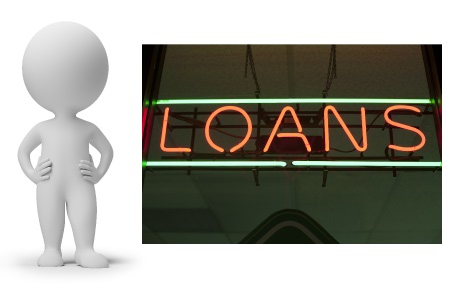How do pawn shop loans work?
- Details
- Written by Q&A Team
- Category: Personal Loans
- Published: May 28 2013

Many of us have either driven by a pawn shop, or even browsed through one at some point in our lives. For those that have never entered into one, they are provide people with the ability to purchase common items at lower than retail prices, and not-so-common items (i.e. collectibles) that are not readily sold in retail stores. The pawn shop acts as an intermediary for people who no longer want items, and those that are looking to acquire them. While people sell items to pawn shops to raise quick cash, you can also go them them for short-term loans.
Pawn Shop Loans Require Collateral
Instead of selling your item to the pawn shop, where you are only likely to receive a fraction of its value (pawn shops are in the business of making a profit), you can instead use that item as collateral for a loan. The pawn shop manager will evaluate the value of the item, and allow you to borrow a percentage of its worth. If you do not repay the loan after the agreed upon term, the pawn shop owner will sell your item and use the proceeds as loan repayment.
Pawn Shop Loans Require No Loan Application
Getting a pawn shop loan does not require too much documentation. Since you have provided collateral, and the pawn shop can sell it for loan repayment, there is no need for a credit check or bank account. The ease and anonymity of these types of loans make them a popular option for people who do not have access to financial products and lending institutions.
How Much Can I Borrow With a Pawn Shop Loan?
Due to the nature of the pawn shop business, the amount you can borrow will depend on the item you bring in, and the perceived market demand for that item. If the pawn shop manager does not feel there is any market demand for the item, you will not likely be able to borrow too much against it. If there are multiple pawn shops in your area, visit them all and see if any one will offer more money than the others.
Pawn Shop Loan Terms
Usury laws do limit the interest rates that can be charged on pawn shop loans, but they can still be pretty high. Pawn shops can also charge a variety of fees which can add to your overall cost of the loan. Loan terms are typically for 30 days, but can be extended with the borrower only having to pay interest fees. Keep in mind that loan extensions will add to the overall cost of your loan.
Pawn shop loans are a way to quickly raise cash if you have items of value to use as collateral. If you decide to go this route, use items that do not have much sentimental value if possible. If you are unable to repay the loan for some reason, you can simply let the pawn shop sell the item as repayment for the loan. Getting loan extensions can make it very costly to get the item back. If you are considering using an item of sentimental value as collateral, make sure that the money you get from the loan is for something you really need.



